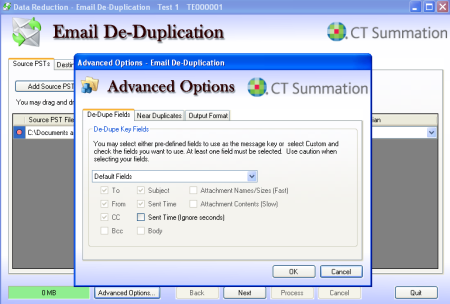From the plains of Kansas comes another short and powerful order by Magistrate Judge David Waxse. On Constitution Day, Judge Waxse was very busy in White v. Graceland College Ctr. for Prof’l Dev. & Lifelong Learning, Inc., 2009 U.S. Dist. LEXIS 85849 (D. Kan. Sept. 18, 2009). For an earlier discussion of this case, please see The Express Way to Your Hard Drive and What Happens When the Requesting Party Does Not State a Form of Production?.
The Court ordered the parties to complete the following discovery by October 1, 2009:
1) Defendant’s production of de-duplicated data. The Court required the Defendants to “provide their computer expert and technician used for the de-duplication process to explain and describe this process, including the technique and criteria used by the process, to Plaintiff’s expert.” White, 1-2.
2) A meet and confer between experts on a search protocol for PST’s to find three email messages. White, 2.
3) A search to be performed with the both experts present on the PST data. White, 2.
4) Defendants were to perform an immediate privilege review. White, 2.
5) Non-privileged search results were to be produced to Plaintiff counsel immediately. White, 2.
6) Defense production of the litigation hold notice issued at the beginning of the case. White, 2-3.
De-Duplication: Separating the Clones from the Twins

If you have never heard of de-duplication, or have heard of it but have been afraid to ask what it is, it is defined as “the process of separating duplicative email messages, word processing documents, and other computer files from your electronic file collection.” Michael R. Arkfeld, Arkfeld on Electronic Evidence, Glossary, G-5 (2nd. Ed.).
As one can imagine, de-duplication requires technology to reduce multiple identical digital copies (image a true DNA clone) down to one. Now imagine electronically stored information such as an Excel file that has been emailed from a Defendant to a Plaintiff. This file is not an exact copy (thus like a twin), because the metadata can be different by who opened the file last, or other smaller changes that make it a different file, thus something you might not want to “de-dupe.”
I can imagine the Defendants’ expert explaining they used a specific software tool and “de-duped” by metadata fields or MD5 Hash Values or some other defensible process. It will be interesting to see what is next reported in this case.

Litigation Hold Notice Production
 A Court generally requires production of a litigation hold letter if there have been issued of spoliation (See, The Holding Pattern: Lessons Learned on Litigation Holds). In this case, the Court required the production of the litigation hold notices and that such production was agreed not be a waiver of the attorney-client privilege or work product doctrine. White, 3.
A Court generally requires production of a litigation hold letter if there have been issued of spoliation (See, The Holding Pattern: Lessons Learned on Litigation Holds). In this case, the Court required the production of the litigation hold notices and that such production was agreed not be a waiver of the attorney-client privilege or work product doctrine. White, 3.
Tools that generate and track litigation hold notices are now commercially available and will make such productions easier in future litigation.
